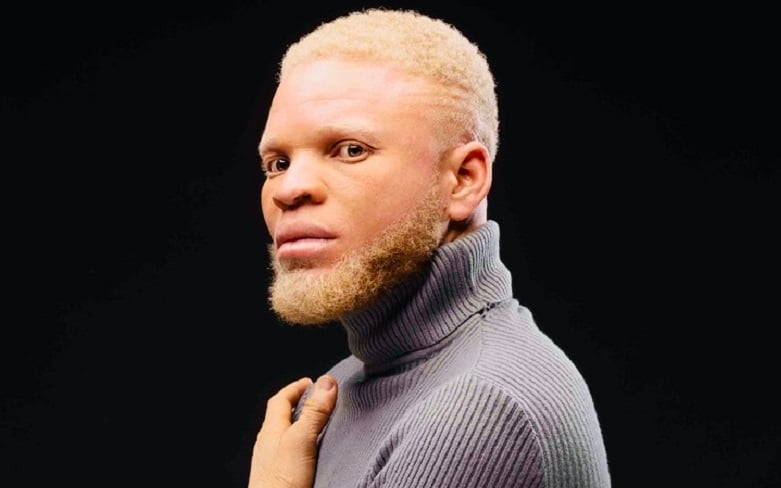Byno Ayoni, the winner of Mentor 12, has candidly discussed the hurdles he has encountered in his music career, primarily stemming from societal misconceptions surrounding albinism. In a recent interview on Daybreak Hitz with DJ Slim, Byno highlighted the unfortunate reality he faces where his talent is overshadowed by prejudices against his appearance. Despite demonstrating considerable skill during various auditions, he reported frequent rejections from record labels and producers, who cited his albinism as a significant barrier to being deemed “marketable.” Byno expressed his frustration at the superficial criteria used by the music industry to evaluate artists, as these judgments often have no bearing on actual performance ability.
Recounting his experiences, Byno revealed that he had performed exceptionally well in several auditions, only to be met with disappointment upon returning for follow-ups. Label executives and producers would often dismiss him, stating he lacked marketability due to his condition, which he found both perplexing and disheartening. He shared, “I have been to a couple of auditions, done very well, and gone back the next day only to be told I didn’t look marketable because I’m an albino.” This discrimination has not only impacted his opportunities but has also shaped his perception of how the industry views individuals with albinism.
The stigma surrounding albinism often extends into misconceptions about the condition itself, particularly concerning the visual limitations that some individuals with albinism may face. In Byno’s case, producers expressed doubts about his ability to perform at night, referencing fears linked to his vision. “They said I did not look marketable and then they would say because of the problem with the eyes of albinos, I would not be able to perform,” he recounted. These misconceptions reflect a broader societal trend where appearances and unfounded beliefs about disabilities are prioritized over an individual’s actual capabilities and potential.
Despite the obstacles placed before him, Byno’s resilience is evident. He speaks passionately about his talent, asserting that his looks should not be the deciding factor in the music industry. His repeated success in auditions is a testament to his abilities, as he often received positive feedback but was still turned away based on superficial judgments. “I would go for auditions and I would perform and they would say it’s good, ask me to come tomorrow,” he noted. Such experiences illustrate the disconnect between his skill level and the arbitrary standards set by industry insiders, challenging the notion that appearance should determine marketability.
Byno’s journey underscores a crucial conversation about the need for inclusivity and representation in the music industry. It calls into question the narrow definitions of beauty and marketability that often exclude individuals based on their physical characteristics or disabilities. Advocacy for broader perspectives in evaluating talent can lead to a richer, more diverse music scene, allowing unique voices to be heard rather than silenced by stigma. Byno’s experiences serve as a reminder of the importance of challenging societal norms and ensuring that all artists are given equitable opportunities to succeed based on their abilities rather than preconceived notions.
Ultimately, Byno Ayoni’s struggle against the barriers created by societal misconceptions about albinism sheds light on broader issues of discrimination and the need for systemic change within the music industry. His story is one of perseverance, reminding us that while talent should reign supreme, many individuals still grapple with the limitations imposed by rigid and uninformed views on appearance and ability. As he continues to navigate his journey, Byno hopes to pave the way for other artists facing similar challenges, asserting that every individual, regardless of their physical attributes, deserves a chance to thrive and showcase their talent.


